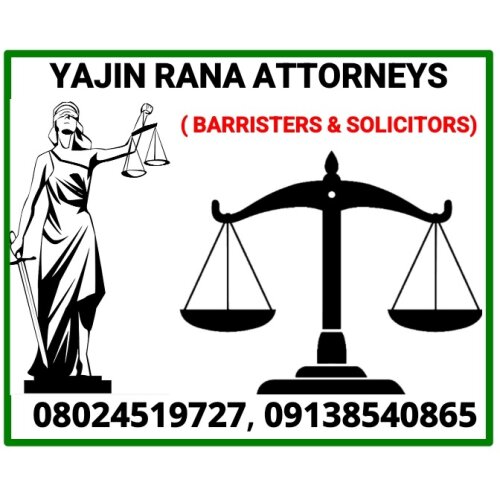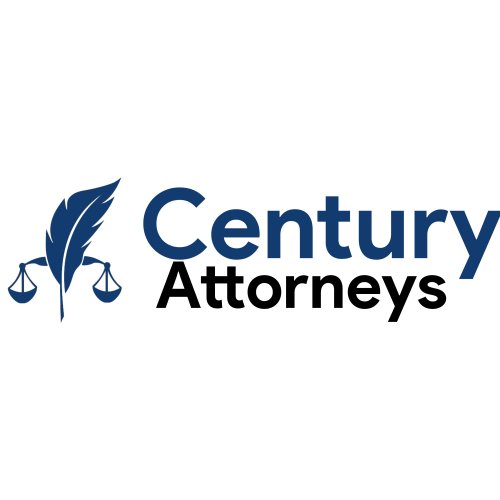Best Landlord & Tenant Lawyers in Kano
Share your needs with us, get contacted by law firms.
Free. Takes 2 min.
Free Guide to Hiring a Real Estate Lawyer
List of the best lawyers in Kano, Nigeria
Nigeria Landlord & Tenant Legal Questions answered by Lawyers
Browse our 27 legal questions about Landlord & Tenant in Nigeria and read the lawyer answers, or ask your own questions for free.
- About rent increament
- I was given 2 months and 28 days notice of increament of rent , I refused to pay and I was given 7days quit notice , my rent was increased by 50%
-
Lawyer answer by CO-dunni Law Solicitors
Although this increase is unconscionable, the 7days notice is valid if your rent has expired. Unless you have an alternative arrangement for accommodation. I suggest you find go and negotiate with your Landlord.
Read full answer - My house rent is expiring on march 28 next year and my landlord gave me quick notice to vacate the property on march 28 . My question is by Imo state Nigeria law is he not supposed to give me time to vacate to vacate after my rent is due
- My house rent is expiring on march 28 next year and my landlord gave me quick notice to vacate the property on march 28 . My question is by Imo state Nigeria law is he not supposed to give me time to vacate to vacate after my rent is due
-
Lawyer answer by CO-dunni Law Solicitors
There are several gaps to your question, first you did not mention the date on the Notice, another you did not mention the type of tenancy, whether it is a yearly Tenancy or a bi-annual Tenancy. The Notice to Quit...
Read full answer - I moved into a self-contained apartment in October 2024, and I paid one year's rent. My landlord issued a notice to quit to me on 23rd July 2025. What does the law say about the 3-month notice?
- I want to know if I should insist on a six-month notice or if I should leave on or before 23rd October.I moved into a self-contained apartment in October 2024, and I paid one year's rent. My landlord issued a notice to quit to me on 23rd July 2025. What... Read more →
-
Lawyer answer by Remedium Reel Attorneys
What would generally determine whether the 3 months notice is if there's a written agreement between you and the landlord. (1) If the agreement spells out that you're entitled to 3 months notice, it's valid. (2) If the agreement is...
Read full answer
About Landlord & Tenant Law in Kano, Nigeria
The Landlord & Tenant Law in Kano, Nigeria refers to the legal statutes and regulations that govern the rights and obligations of landlords and tenants in the state. These laws set out the guidelines for renting residential and commercial properties, including issues related to leases, rent payments, property maintenance, and eviction procedures.
Why You May Need a Lawyer
There are several instances where seeking legal advice from a lawyer specializing in Landlord & Tenant law in Kano, Nigeria is highly recommended. Some common situations include:
- Lease Agreements: Understanding and drafting lease agreements to protect your rights as a tenant or landlord.
- Rent Issues: Resolving disputes regarding rent payments, rent increases, and lease renewals.
- Property Maintenance: Ensuring that landlords fulfill their obligations to maintain the property in a habitable condition.
- Evictions: Seeking legal assistance if facing an eviction to understand your rights and explore possible defenses.
- Security Deposits: Recovering security deposits or resolving disputes related to deductions.
Local Laws Overview
Kano State has specific laws related to Landlord & Tenant, including:
- The Kano State Recovery of Premises Law: Provides guidelines for eviction, recovery of possession, and notice periods.
- The Kano State Tenancy Registration Law: Requires landlords to register tenancy agreements and provides a framework for resolving disputes.
- The Kano State Rent Control and Recovery of Residential Premises Law: Regulates rent control and provides mechanisms for rent review.
Frequently Asked Questions
Q: Can a landlord increase the rent arbitrarily?
A: No, landlords in Kano, Nigeria must follow the provisions of the Rent Control and Recovery of Residential Premises Law. Rent increases must be reasonable and the landlord must give proper notice to the tenant.
Q: What are the rights and responsibilities of tenants regarding property maintenance?
A: Tenants have the right to live in a property that is habitable and in good condition. Landlords are responsible for maintaining the property's structure, plumbing, and electrical systems. However, tenants are generally responsible for minor repairs and keeping the property clean.
Q: How can I terminate my tenancy agreement?
A: Both landlords and tenants can terminate a tenancy agreement by providing a written notice of their intention to terminate. The notice period may vary depending on the terms of the agreement or local laws, but it is generally 30 days.
Q: What can I do if my landlord refuses to return my security deposit?
A: If your landlord refuses to return your security deposit without a valid reason, you can seek legal assistance. The Kano State Recovery of Premises Law provides recourse for tenants to recover their security deposits.
Q: What should I do if I receive an eviction notice?
A: If you receive an eviction notice, it is important to seek legal advice immediately. A lawyer specializing in Landlord & Tenant law can guide you on your rights, potential defenses, and can help you navigate the eviction process.
Additional Resources
For further information and assistance related to Landlord & Tenant law in Kano, Nigeria, you can consider contacting the following resources:
- Ministry of Housing and Urban Development, Kano State
- Kano State Landlord and Tenant Mediation Panel
- Kano State Law Reform Commission
Next Steps
If you require legal assistance in Landlord & Tenant matters in Kano, Nigeria, it is essential to consult with a lawyer who specializes in this field. They can provide personalized advice based on your specific situation and help you protect your rights as a tenant or landlord.
Lawzana helps you find the best lawyers and law firms in Kano through a curated and pre-screened list of qualified legal professionals. Our platform offers rankings and detailed profiles of attorneys and law firms, allowing you to compare based on practice areas, including Landlord & Tenant, experience, and client feedback.
Each profile includes a description of the firm's areas of practice, client reviews, team members and partners, year of establishment, spoken languages, office locations, contact information, social media presence, and any published articles or resources. Most firms on our platform speak English and are experienced in both local and international legal matters.
Get a quote from top-rated law firms in Kano, Nigeria — quickly, securely, and without unnecessary hassle.
Disclaimer:
The information provided on this page is for general informational purposes only and does not constitute legal advice. While we strive to ensure the accuracy and relevance of the content, legal information may change over time, and interpretations of the law can vary. You should always consult with a qualified legal professional for advice specific to your situation.
We disclaim all liability for actions taken or not taken based on the content of this page. If you believe any information is incorrect or outdated, please contact us, and we will review and update it where appropriate.














